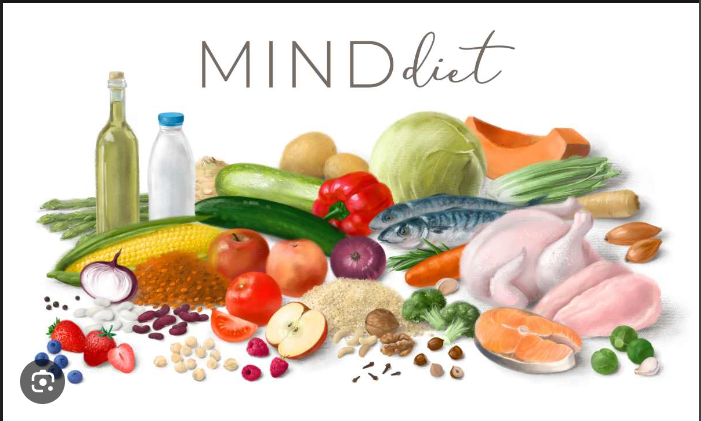The MIND diet, also known as the Mediterranean-DASH Intervention for Neurodegenerative Delay diet, focuses on foods that promote brain health to possibly reduce the risk of mental decline by combining two well-established diets—the DASH and Mediterranean—into one.
What Is the MIND Diet?
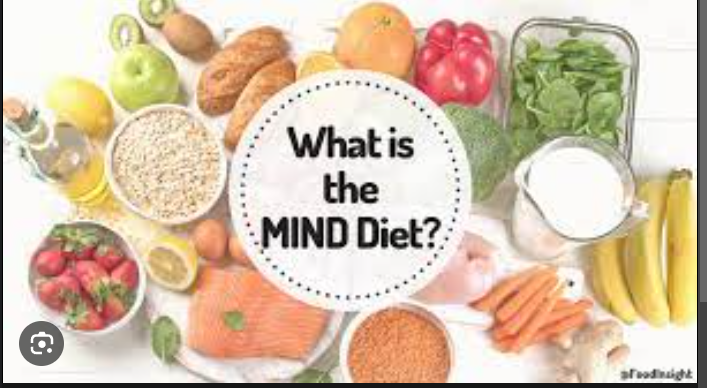
Also read-Flexitarian Diet: What To Know About The No. 2 Diet
The MIND diet, also known as the Mediterranean-DASH Intervention for Neurodegenerative Delay diet, combines the Mediterranean and DASH diets and focuses on the items in each that are specifically better for brain health in order to reduce the risk of mental decline. Eating wholesome staples like leafy greens, almonds, and berries may reduce a person’s risk of acquiring the progressive brain ailment, while there is no guaranteed way to avoid Alzheimer’s disease, which the MIND diet initially targeted, or other types of dementia.
Through a National Institute on Aging-funded study that was first released in 2015, the late Martha Clare Morris, a nutritional epidemiologist at Rush University Medical Center, created the MIND diet. According to the study, the MIND diet reduced the risk of Alzheimer’s by up to 53% in those who adhered to it religiously and by roughly 35% in those who followed it only loosely. Additional research links the MIND diet to additional advantageous impacts on cognition.
Friendly to families. Meals can be simply shared among family members with little to no alteration. All ages can enjoy the nutritious and well-balanced culinary alternatives.
Easily affordable. Foods for this diet are easy to locate at a standard grocery store; don’t call for pricey or specialized foods.
Ecologically sound. The diet takes the effects of food choices on the environment into account. It is primarily plant-based, or the foods are cultivated and produced primarily sustainably.
Suitable for vegetarians and vegans. It is possible to adapt recipes for a vegan or vegetarian diet.
Tolerant of gluten-free It is simple to alter recipes to adhere to a gluten-free diet.
How Does the MIND Diet Work?
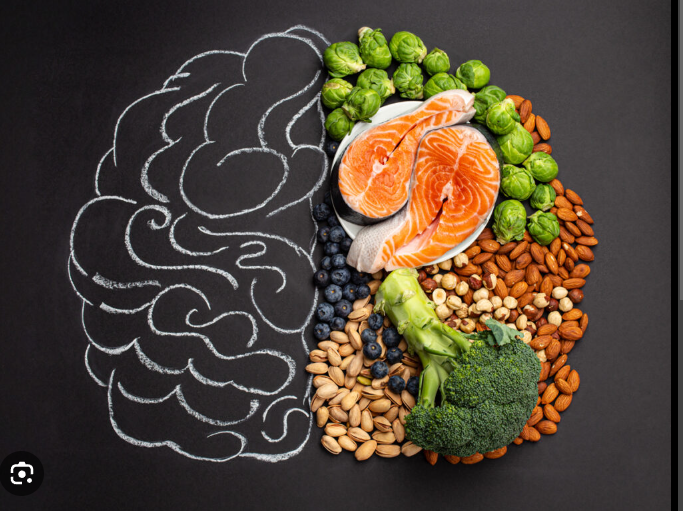
- Eat seven 1-cup servings of leafy green vegetables weekly.
- Eat five ½-cup servings of berries weekly.
- Include whole grains and other vegetables daily.
- Drink a daily glass of wine (optional).
- Snack on nuts most days and eat a ½-cup of beans every other day.
- Have poultry and a ½-cup serving of berries (blueberries are best) at least twice weekly.
- Have fish at least once a week.
- Extra-virgin olive oil, with two single-tablespoon daily servings, is your go-to, replacing butter, margarine, or vegetable oil when cooking.
- Have fewer than four servings of red meat and meat products, like sausage, weekly.
- Have fewer than five sweets or pastries weekly.
- Consume two single-ounce servings or less of full-fat cheese weekly.
You avoid foods from brain-unhealthy dietary groups in addition to concentrating on brain-healthy foods. You can only have one teaspoon or less of butter each day.
According to Puja Agarwal, an assistant professor of internal medicine at Rush University Medical Center and a nutritional epidemiologist at the Rush Alzheimer’s Disease Center, it is unclear how the MIND diet can lower the risk of dementia or improve cognitive performance.
Can I lose weight on the MIND Diet?
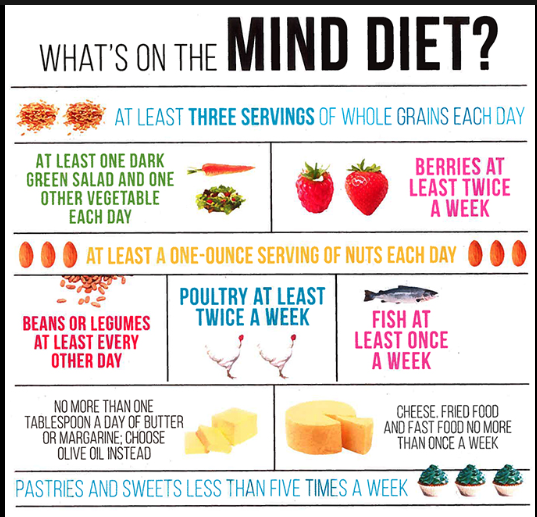
By following the MIND diet, you might lose weight. Although the original MIND study was not designed to help people lose weight, the brain-unhealthy items that were discouraged in it, such as whole dairy products, pastries, sweets, and fried foods, are also linked to weight gain. You might lose weight and lower your risk of dementia by avoiding these foods.
Regarding the two diets that served as the foundation for MIND, some research has connected the Mediterranean diet to weight loss or a decreased risk of being overweight or obese. Similar to the DASH diet, the MIND diet may help you lose weight, especially if you create your own customized plan with a calorie deficit.
Who Should Not Try the MIND Diet?
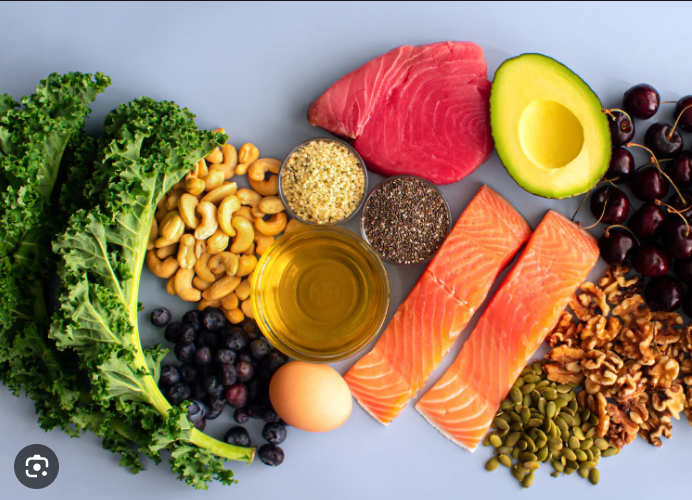
If you’re looking for rapid weight loss rather than brain-health benefits, MIND might not be your best choice.
As with any diet, you should check with your doctor if the MIND diet is right for you, particularly if you have any health conditions.
Pros
- Nutritionally sound.
- No counting carbs, points, or calories.
- Filling: it’s rich in high-fiber foods.
- A clearly defined plan with recipes
- Has proven health benefits.
- Diverse foods and flavors
Cons
- Lacks in-depth nutritional guidance.
Also read-DASH Diet For Healthy Weight Loss And Hypertension
images source-google







